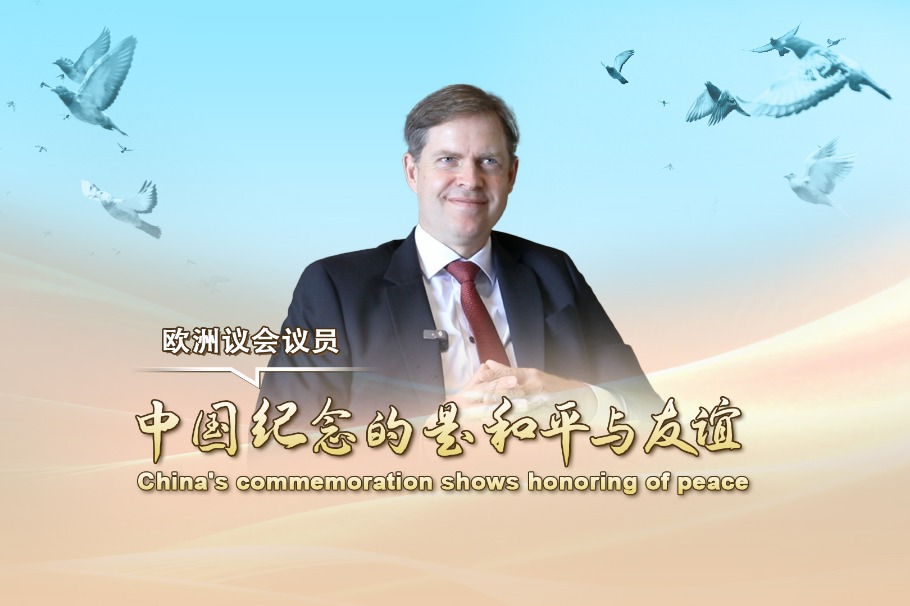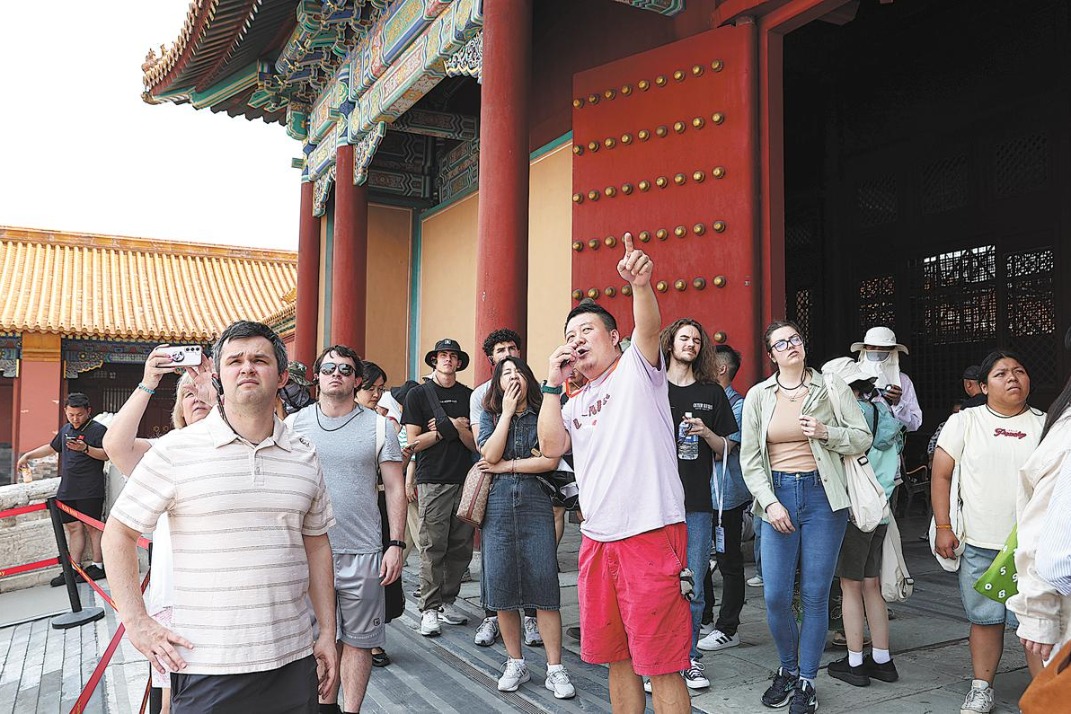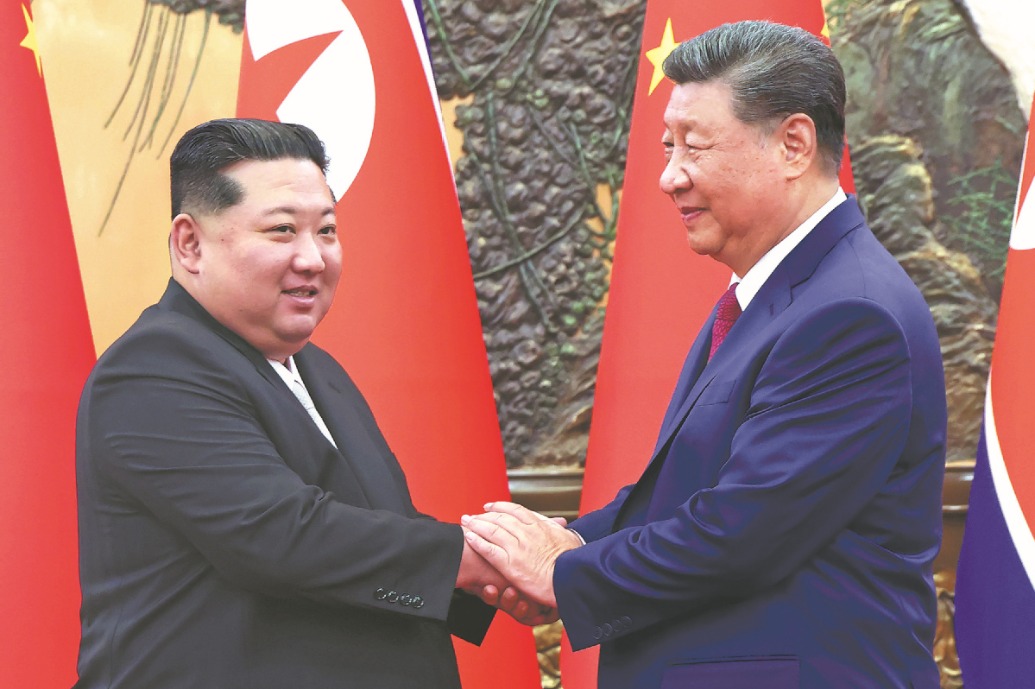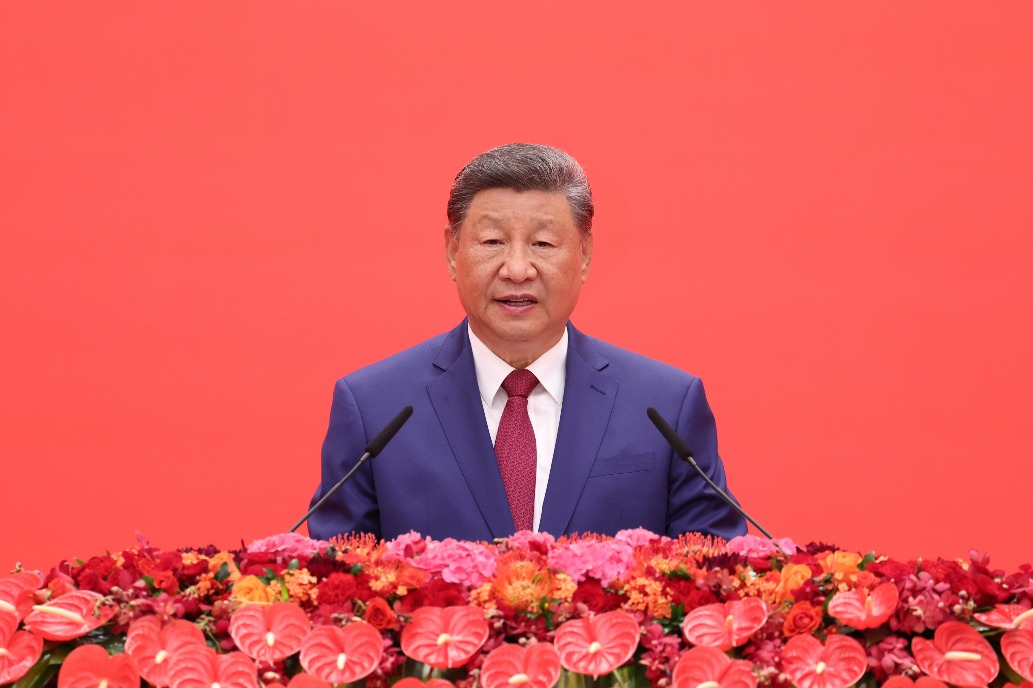HK marches ahead with prosperity and stability


National Security Law, new electoral system point way forward for city
Nearly 10 years ago, Sze Chi-king, a middle-aged Hong Kong teacher, faced a class of 32 pupils and their curious parents as 40 cameras focused on his every movement, even involuntary facial expressions.
The pupils were attending the first Moral and National Education, or MNE, class held in the city, in October 2012.
Just days earlier, the Hong Kong government announced it was shelving the planned MNE curriculum after it met strong opposition.
However, Sze, who was deputy principal of Fresh Fish Traders' School in Kowloon, decided to introduce national education into his school's syllabus.
He thought that the city's widely recognized education system based on performance needed to be improved to help the younger generation learn about their origin and identities.
For the first lesson, he spoke about the national flag and national anthem.
"I told my students we should respect the national flags of all countries. The Chinese national flag is a symbol of our nation and our history, and we should always respect it," Sze said.
Sze remained committed to the cause, even in 2019, when Hong Kong was embroiled in anti-government protests that later developed into street violence and vandalism.
Business in the city came to a halt, along with school classes. Among the residents arrested, more than 40 percent were students-half of them attending secondary schools, and the remainder at universities and colleges.
Sze said: "What happened in 2019 was a wake-up call for me. Teaching is more than merely concentrating on what is in textbooks-it should be value-centered."
He said the social unrest reinforced his original aim to introduce national education at his school.
After the unrest, Sze renewed the curriculum, placing the emphasis on topics related to national security and the Basic Law, the constitutional document for the Hong Kong Special Administrative Region.
To make learning more fun, he named 12 senior students as "ambassadors" for the Basic Law. The school also held events such as China Week, which featured a quiz with prizes and also games in which fun facts about the nation were presented to students.
The social unrest in 2019 not only served as a wake-up call to Sze, but also for other patriots in the city and the authorities.
After months of disorder on the city's streets, on Nov 5, 2019, President Xi Jinping told the then Hong Kong Chief Executive Carrie Lam Cheng Yuet-ngor that ending the violence and restoring law and order was the most important task for Hong Kong.
In a speech to usher in 2020, which was broadcast nationwide, Xi said: "In recent months, we have been concerned with the situation in Hong Kong. Without a harmonious and stable environment, how can people live in peace and enjoy their work? I sincerely wish Hong Kong well and our Hong Kong compatriots well. A stable and prosperous Hong Kong is the wish of Hong Kong compatriots and the expectations of our motherland."
On June 30, 2020, the Standing Committee of the National People's Congress, the nation's top legislature, adopted the Law of the People's Republic of China on Safeguarding National Security in the HKSAR, putting an end to the prolonged chaos and allowing the city to quickly regain law and order.
On March 30 last year, the NPC, in a unanimous vote, approved amending and improving the city's electoral system, aiming to keep administering power in Hong Kong firmly in the hands of patriots.
Safety valve
Lau Siu-kai, vice-president of the Chinese Association of Hong Kong and Macao Studies, said the central government's initiatives to introduce the National Security Law and improve the city's electoral system have returned Hong Kong to the right track of "one country, two systems".
He said the central government has exercised overall jurisdiction with caution and prudence since Hong Kong's return to the motherland in 1997. It had to step in when the practice of "one country, two systems" was plunged into its biggest-ever crisis in 2019.
Lau described the implementation of the "one country, two systems" principle over the past 25 years as a general success. But he said that with the aid of foreign forces, anti-China troublemakers went to extreme lengths, taking advantage of a flawed political system that didn't fully implement the "patriots administering Hong Kong" principle.
The inclusion of troublemakers in the city's governing team also led to problems such as failure to achieve effective governance, and the absence of a national identity among young people came to a head in 2019, threatening the city's political stability.
When the "one country, two systems" principle was drawn up, the central government's overall jurisdiction over Hong Kong translated into "one country", stemming from its sovereignty over the city, Lau said.
He added that the high degree of autonomy conferred on Hong Kong by the central government under "one country, two systems" means the city is entitled to part of this autonomy, not all of it, and the central government still holds the right of overall jurisdiction.
In a speech marking the centenary of the Communist Party of China on July 1 last year, Xi Jinping, general secretary of the CPC Central Committee, stressed the duty that Hong Kong and Macao have to safeguard national security, while emphasizing that the central government exercises overall jurisdiction over the two cities.
Lau said that events in 2019 proved that such a course of action was not only necessary, but a wise one with foresight.
Since Xi took office in 2012, while doubling down on efforts to get the city back on the right track, the central government has enhanced its support for Hong Kong.
In October 2017, upholding the principle of "one country, two systems" was incorporated in the report of the 19th National Congress of the CPC as part of the basic policy to uphold and develop socialism with Chinese characteristics in the new era.
Xi, in a meeting with Lam, the then chief executive, two months later said the report points the way for Hong Kong to become integrated in the nation's overall development.
























